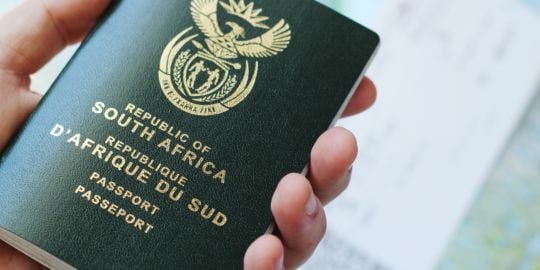Travelling to South Africa with your pet

Planning your move abroad is a challenging feat, and it can be even harder if you want your pet to come along. If you want to move with your pet to South Africa, you will need to start at least 3 months before your move. Pets under 3 months of age are not accepted by airlines on medium and long flights.
Veterinary protocol for South Africa
Dogs and cats coming to South Africa must generally meet the following conditions:
- Have an "Import Permit" issued by the Department of Agriculture, Forestry and Fisheries of South Africa. It takes 2 to 3 weeks to obtain it, but it will not be sent to you. Someone will have to collect it from the Department to send it to you. This permit is only valid for 6 months. A "Health Certificate" to be filled out by your veterinarian within 10 days prior to departure will also be given to you. The application fee is about 200 Rands, and the payment modalities will be communicated to you by the contact in charge of the application. Their email address is: [email protected]
- An electronic identification (chip).
- Have a passport of the animal.
- To have received an anti-rabies vaccination less than 12 months old (and more than 30 days old for the first vaccinations). Animals less than 3 months old are considered vaccinated if their mother was vaccinated at least 30 days and at most 12 months before their birth. They must be vaccinated in South Africa at the age of 3 months.
Dogs must have been tested 30 days prior to departure for:
- Brucella canis
- Trypanosoma evansi
- Babesia Gibsoni
- Dirofilaria immitis
- Leishmania.
If this is not the case, a 14-day quarantine will be imposed upon their arrival, during which the tests will be performed.
For dogs, a test against filaria will be performed. From the day of the negative test until the importation, it will be necessary to give a treatment against filaria to your dog and to plan to take with you a treatment for 6 months.
Your veterinarian will have to establish a health certificate specific to South Africa in the 10 days preceding the departure. This document must be stamped by the relevant authorities in your home country.
Planning your pet's trip to South Africa
Regulations and prices differ depending on the airline, the duration of the flight, the countries of call and destination. Since the number of seats in the hold is limited, it is preferable to book in advance and inquire about the terms and conditions for transporting your pet. Pets are accepted in the cabin or in the hold under certain conditions. If they do not meet these conditions, they will have to travel by cargo.
Traveling in cabin
The animal must be in a cage that meets IATA standards and whose dimensions must not exceed those of hand luggage. The authorized weight varies according to the companies from 5 to 10 kg (animal and cage included).
Travel in the hold
The animal must travel in an IATA-approved cage, and the weight of the animal and cage must not exceed 50 kg.
Cargo travel
Dogs and cats with snub noses (boxers, bulldogs, pugs) are very rarely accepted on board aircraft due to respiratory problems. Category 1 and 2 dogs (attack or defense dogs) are not accepted by airlines.
Your pet's arrival in South Africa
Dogs subject to quarantine must arrive at Johannesburg or Cape Town airport. Those not subject to quarantine can arrive in Durban, but the other South African airports are closed to pets. Customs formalities on arrival are quite tedious and can take several hours.
In the case of arrival by freight, the forwarder will contact you a few days before to inform you of the place, date and time to pick up your pet. Remember to bring your passport and the animal's file. A veterinarian will come on-site to verify the documents.
It is always very exciting to prepare a move overseas, but it is also necessary to consider the possibility of return and to verify before leaving what the sanitary requirements will be to repatriate your animal in Europe. Anti-rabies titration, which is not mandatory in South Africa, is for some European countries, and the analysis can only be done by a laboratory approved by the European Union.
Useful links:
South African Government Portal
South African Department of Agriculture









